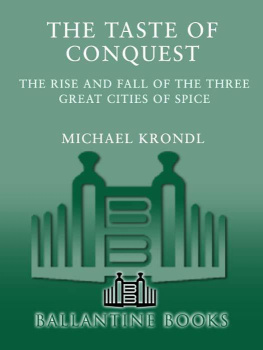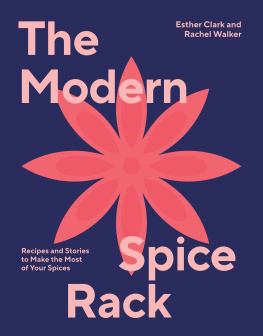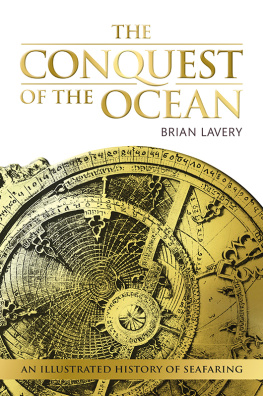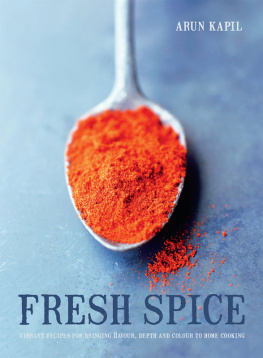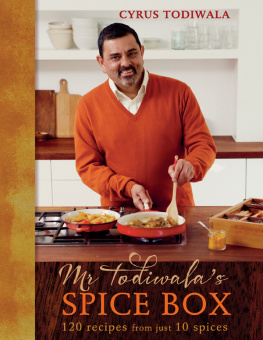

Contents

PART 1
Venice
PART 2
Lisbon
PART 3
Amsterdam
Preface

Writing this book has been a great adventure! Ive gotten to eat in the homes of Indian pepper growers and Venetian blue bloods. Ive met Dutch entrepreneurs and Portuguese sailors. I now know the difference between a triangular sail and a square one, and I can explain how ginger is harvested and cleaned because Ive seen it done. What could be more fun than studying food?
Maybe thats why the study of the history of eating has been beneath the dignity of serious scholars for so long and why they never bothered to check their facts when they claimed that the medieval gentry ate food drowning in tsunamis of spice. Grudgingly, academia now accepts the study of culinary history into its ranks. But the subject is still new, and enormous work has yet to be done. Nevertheless, data are slowly accumulating that will eventually give us a more complete picture of what people used to eat. And then maybe well really understand why spices, for example, were as much an integral part of the European diet in the Renaissance as they are today in Morocco or India. And then maybe we can truly understand Europeans taste for conquest.
I am not a specialist, which, because of the nature of this book, may have been an advantage. It has meant, however, that I have had to substitute breadth for depth. In certain cases, I have had to make deductions where the evidence is just too scanty for solid proof and to depend on the work of others. On the occasions when I have found that research to be self-evidently too shaky to stand, Ive had to dig under the foundations. Given how often the construction proved faulty, I wonder how many authors I have taken on faith are just plain wrong. Which is not to say that I can blame others for my mistakes. I have surely made plenty of errors on my own. I hope and trust that others will come to correct them.
As with any project of this size, numerous people have given me assistance and offered invaluable suggestions. Many have extended their hospitality on little more than good faith. Others have held me back as I was about to place my foot firmly in my mouththough probably not often enough.
Id like to begin by thanking my editors, Susanna Porter and Dana Isaacson, for all their valuable suggestions. In addition, I am indebted to Elisabeth Dyssegaard, who originally championed the book at Random House and without whom it might never have taken flight. My agents, Jane Dystel and Miriam Goderich, have been fantastic throughout, going way beyond their job description at every stage of the project.
Then there are the dozens of people who helped along the way. In Venice, there is Luca Colferai, who keeps amazing me by his boundless generosity. But he was not alone. I am also grateful to Jurubeba Zancop, Sergio Fragiacomo, Dr. Marcello Brusegan, and Antonio Barzaghi.
The Portuguese, however, were not to be outdone. I dont know what I would have done without Mnica Bello, whose journalistic skills and friendship were a godsend. I also want to thank Alexandra Baltazar, Bruno Gonalves Neves, Hernni Amaral Xavier, Isabel Cruz Almeida, Jos Eduardo Mendes Ferro, Jos Marques da Cruz, and Rui Lis. Though he is not in Lisbon, my visit to Portugal would have been a pathetic failure without Filipe Castro, the naval archaeologist who opened up his personal Rolodex and thereby many doors in Portugals capital.
When it comes to Holland, Peter Rose acted as my academic fairy godmother, fulfilling every obscure inquiry and keeping me on the straight and narrow. In the Netherlands itself, Cees Bakker, Christianne Muusers, and Anneke van Otterloo were all generous with their time and expertise. I greatly appreciate the time Frank Lavooij took out of his busy schedule, to say nothing of our lunch together.
In India, too, peoples generosity was unbounded. In Cochin, C. J. Jose and his staff at the Spices Board were terrifically helpful, as were Heman K. Kuruwa, Jacob Mathew, K. J. Samson, Nimmy and Paul Variamparambil, and Ramkumar Menon. Thomas Thumpassery was especially kind to open up his home to me and show me the ways of the pepper grower. I am also grateful to V. A. Parthasarathy and his eminent staff at the Indian Institute of Spices Research for allowing me a glimpse of their inner sanctum. In Baltimore, James Lynn did me a similar favor at McCormick headquarters.
A partial list of others who helped by word or deed would have to include Amanda J. Hirschhorn, Ammini Ramachandran, David Leite, Gopalan Balagopal, Kenneth Albala, and Paul W. Bosland.
Finally, I would like to thank my wife and daughter for putting up with my extended absences and weeks of monomania.
First Taste
S T . A LBANS
T HE S ULTAN AND THE O RGY
In my mind, flavor, smell, and memory are intertwined. To really understand a distant time and place, you should be able to sample its antique flavors, sniff the ancient air, and take part in its archaic obsessions. But how can you taste the food of a feudal lord? Where do you meet a medieval ghost?
I came across a likely spot on a cobbled lane in the old English pilgrimage town of St. Albans. The Sultan restaurant is located here in the lee of a great Norman cathedral in a house that seems to stagger more than stand on the little medieval street. I had made my pilgrimage to St. Albans to track down the remains of a famous medieval travel writermore on him laterbut before searching for phantoms, I was in desperate need of lunch. To get to the Sultans dining room, you have to climb a set of steep and wobbly stairs to the second story, where the sagging, timbered attic has been fitted with tables, each separated from the next by perilously low rafters. The space cries out for blond, buxom wenches bearing flagons of ale and vast platters overflowing with great haunches of wild beasts showered with cinnamon, ginger, pepper, and cloves. And indeed, the kitchen door exudes sweet and fiery spice. But the waiter is skinny, male, and decidedly not of Norman stock, and if that werent enough of a clue, the Indian hip hop on the sound system and Mogul prints on the walls will quickly disabuse you of any illusions of stepping into Merrie Olde England.
The Sultan specializes in Balti cooking, a type of South Asian cuisine that swept Britain by storm some years back. The style originates in Baltistan, a place once identified with Shangri-La but now more likely to make headlines for its sectarian bloodshed. The mountainous territory stands astride a tributary of the Silk Road once used to bring spices from South India to China, Persia, and the Mediterranean. Accordingly, as is only appropriate for such a mythical land, Balti food is profoundly spicy. But is it as spicy as the food of Europes Middle Ages, I wonder?
I order gosht chilli masala, a lamb stew pungent with hot Kashmiri pepper. The stainless steel tray of meat looks quite innocent, and the first taste is gentle enough. It begins with sweet notes of coriander, cardamom, and cinnamon. Then the red peppers roar in. Chilies, both fresh and dry, are blended to such incendiary effect that the occasional black peppercorn comes along as a mild respite. I gulp down my wine and pile more stew onto the flatbread.
Take away the chilies (unknown in Europe until Columbus returned from his misdirected search for the pepper isles), and I bet this is food that any self-respecting knight in armor would recognize.
Next page
